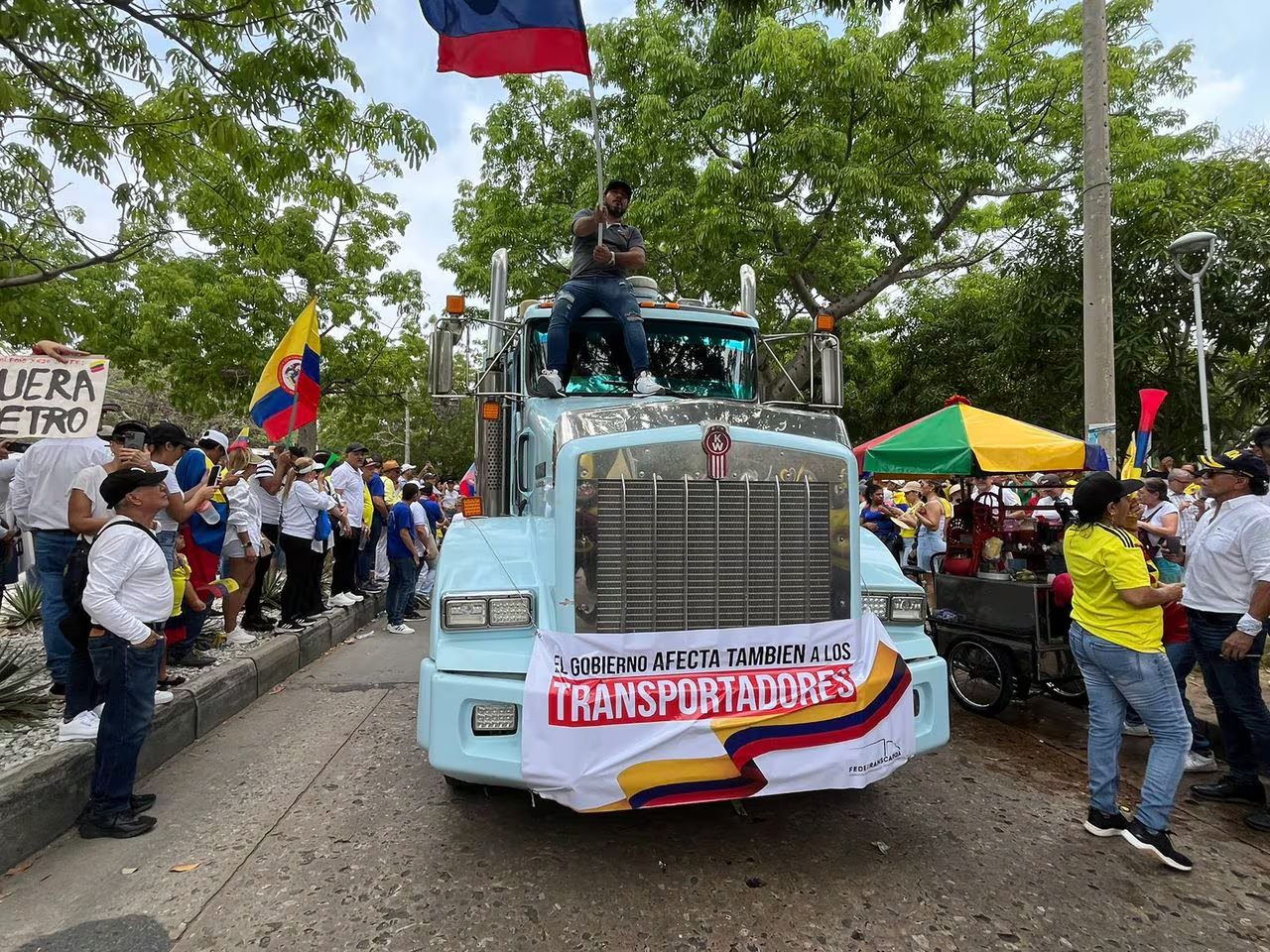Hundreds of thousands of Colombians took to the streets of some of the nation’s largest cities to protest against current President Gustavo Petro’s government and controversial policies on Sunday.
A Sea of White:
Opposition leaders, healthcare workers, and social activists were joined by everyday Colombian citizens clad in white shirts in a protest where a number of complaints were levied against Petro’s government while protestors called for the removal of Petro from office.
Complaints ranged from the President’s attempted healthcare and ongoing pension reform alongside Petro’s actions regarding the dire security situation in Colombia with armed groups such as the Revolutionary Armed Forces of Colombia (FARC), the National Liberation Army (ELN), and other armed groups who regularly victimize Colombian civilians continuing operations in the countryside.
Many of the marches began at 10 AM local time with only a handful of protestors marching earlier in the day. Similar protests were organized overseas, with protests beginning in Miami, Los Angeles, New York, Houston, and Toronto.
????? ÚLTIMA HORA | Comunidad colombiana en Miami marcha también en contra del gobierno Petro. El pueblo colombiano sale a gritar #FueraPetro por todo el mundo. ¿La desaprobación de Petro será mayor al 63% que marcó Invamer?pic.twitter.com/wNKYJfz9Tw
— IMPACTO 24/7 (@Impacto24_7) April 21, 2024
The Transporter Guild joined the march in Bogota, arriving in an estimated 150 semi-trucks and 80 special service buses where they demanded that Petro’s government address a number of concerns relating to the welfare and safety of workers in the field.
“This is a call we are making to President Gustavo Petro and the ministers of this government. Let’s change the policies and open the doors to people who truly work for Colombia.” Henry Cárdenas, president of Fedetranscarga stated. “Let’s seek benefits for the drivers who, every day, work for our country. They carry the economy on their backs. Yes to them, but let’s not seek more benefits for the vandals on the streets, let’s not seek more benefits for the groups outside the law.”
El sector volquetero presente en #Bogotá #MarchaNacional #Abril21@fedevolco@asovolbocun #FEDETRANSCARGA @petrogustavo @MinTransporteCo @MinHacienda @CaracolRadio @dona_pily2 @NoticiasCaracol @CMILANOTICIA @ELTIEMPO @RevistaSemana @cargapesadacol pic.twitter.com/cPD3cOSAXz
— FEDETRANSCARGA (@fedetranscarga) April 21, 2024
The aforementioned “benefits for groups outside the law” is a reference to President Petro’s controversial efforts to bring what he calls an era of “total peace” to Colombia, working to end the nearly 60-year-long armed struggle between the government and various armed groups in Colombia. This plan has resulted in a number of ceasefires between government forces and armed groups, with ceasefires being previously brokered with the FARC and the ELN.
However, both of these ceasefires have found themselves in troubled times as the ceasefire with the FARC was dissolved following an attack on an indigenous community while the ELN has suspended peace talks with the Colombian government.
“The Government has failed to fulfill all its promises, security is at rock bottom, vandalism took over the cities, the guerrillas returned to the rural area and the country is in free fall.” veterans of the Colombian military told Semana during the protests.
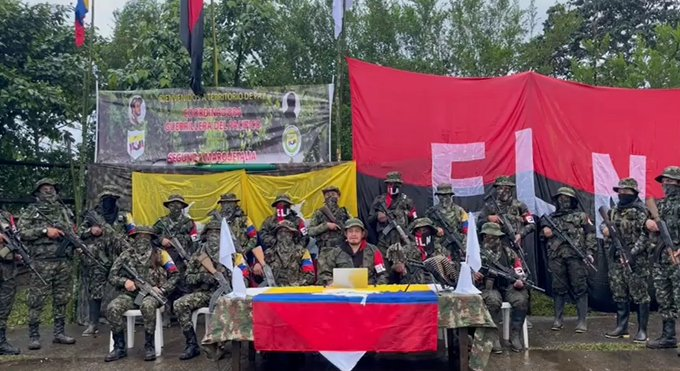
The protests themselves have been peaceful, with protestors in Bogota cheering when the Mobile Anti-Disturbance Squadron (ESMAD) which specializes in observing protests and dispersing those that turn violent arrived to oversee the protest.
Those in Bogota converged on the Plaza de Bolivar, a square that houses key cultural buildings as well as the nation’s Congressional building and a common destination for those protesting against the government. Similar anti-Petro protests alongside marches on International Women’s day ended at the square in March with two different receptions from local police.
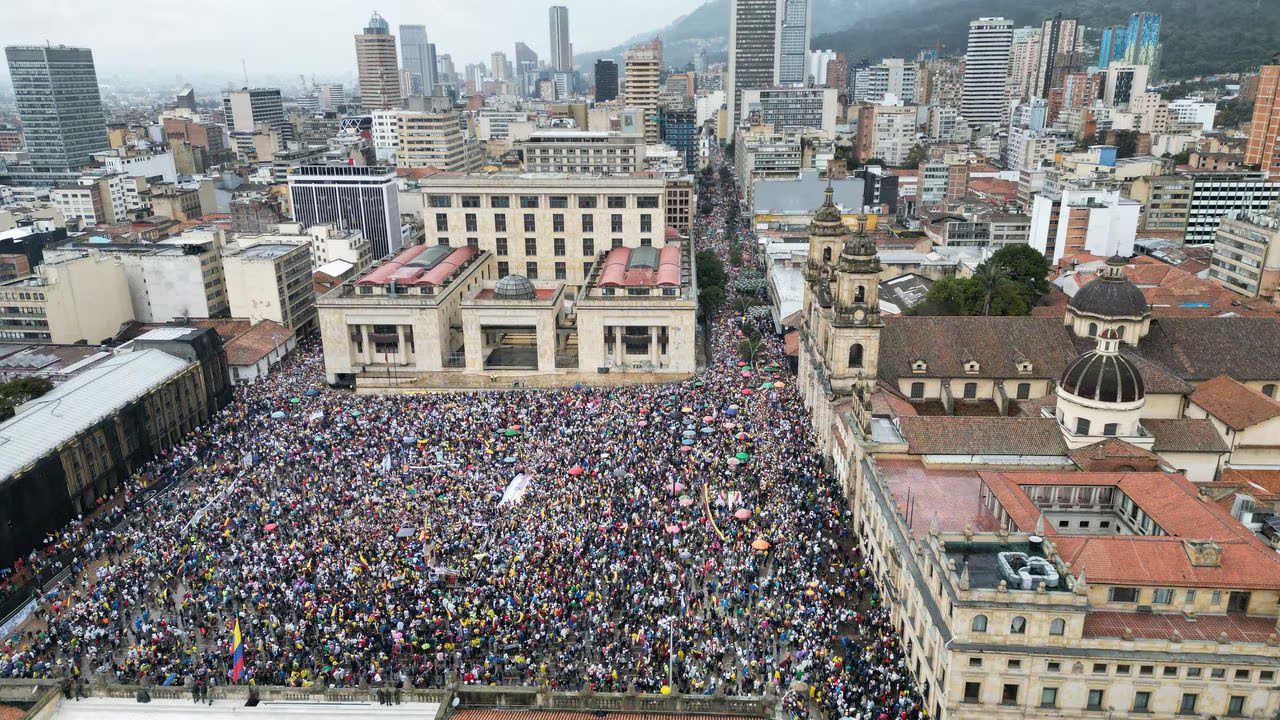
Calls For Action:
Ingrid Betancourt, a Colombian politician under the Green Party and survivor of a FARC kidnapping, called for the impeachment of Petro.
“The motivation is very simple. All Colombians are united to defend our democracy. We want a political trial; we want it not to be bottled up for us. We want to remove Petro, yes, but with the Constitution and the law,” Betancourt stated. “We want our health not to be ruined, our pensions not to be stolen, and criminals not to be hunted down and rewarded, so that we can be a Colombia that progresses. For that, we already know that Petro wants to take us to Castro-Chavismo, and that cannot happen here.”
Protestors have reportedly united from a plethora of different political parties, with a number of leaders stating that the protest is not for certain individuals or party politics but to express the dissatisfaction that protestors have with Petro.
“Colombians, the day has come to defend democracy. It’s now or never.” Jaime Arizabaleta, a journalist and activist, stated. “We do not come out for any political party or any specific leader. Everyone fits in this march; this march has no owner.”
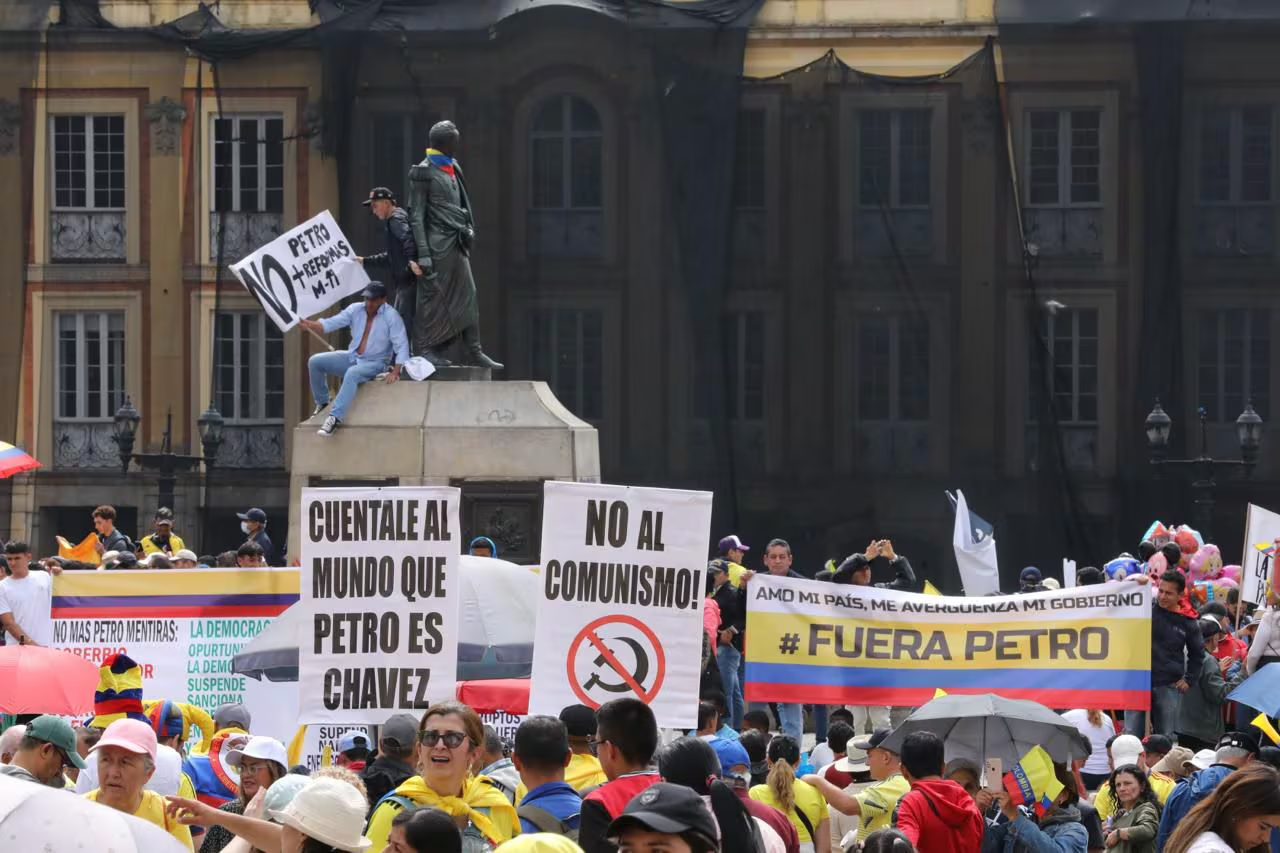
Doctors Among the People:
A number of healthcare workers and even patients joined the protest in order to address Petro’s failed healthcare reform. Protestors allege that through the government’s intervention in the healthcare industry, there has been a shortage of medication and that healthcare workers have been “mistreated” through the attempted healthcare reform.
Agamenón Quintero, the leader of the ACSC healthcare union, told Semana that throughout the discussion of the proposed reforms in Congress, he alongside other healthcare workers were ignored.
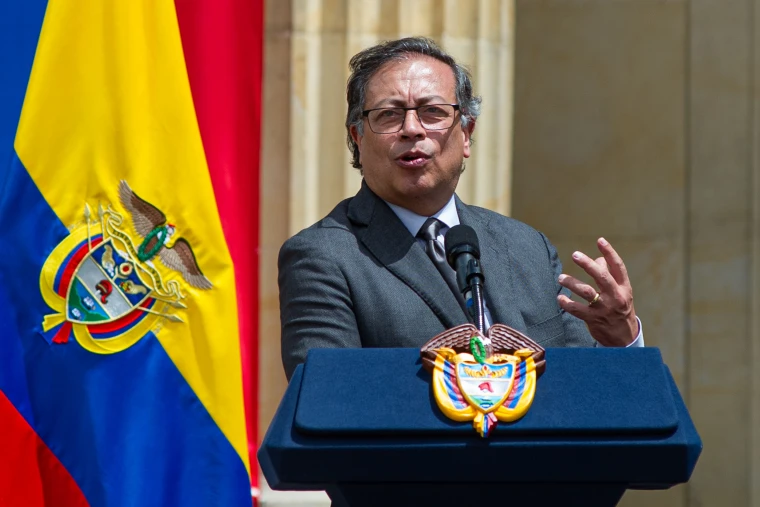
“What should have happened is that we sat down to build together, not with our backs to the health professionals.” Quintero stated in the interview.
Quintero further stated that he believes what is coming to the healthcare system in Colombia will be “worse than the pandemic.” Claiming that the Colombian healthcare system will suffer if those unfamiliar with medical work are the sole power behind the reforms.
Quintero ended the interview by stating that while he was not defending Colombia’s EPS insurance provider, any reforms to the healthcare system should be done in collaboration with workers in the sector.
Analysis:
The protests signal a great change in Colombia’s political landscape and showcases the Colombian people’s growing dissatisfaction with the President. Petro, who won just under 51% of the 2022 presidential popular vote, has seen a sharp decrease in overall public approval with the President’s approval rating standing at a mere 35% as of February while 58% stand opposed to the leader.
A great deal of this loss of public support can be traced back to Petro’s controversial “total peace” plan which has been the subject of hot debate between both everyday Colombians, politicians, and analysts alike. This, alongside concerns over the president’s various reforms, has led to a number of protests and concern for the future of the economy, with some Colombians worrying that the nation is headed down a similar path as Venezuela with the rise of Hugo Chavez.
Concerns over the plan for “total peace” have been criticized as giving far too much leeway to armed groups within Colombia. This criticism has seen some truth as under Petro’s presidency both the FARC and the ELN have grown in power due to the reprieve from hostile actions by Colombian authorities. This allowed the group to significantly recover from the number of high ranking members deaths and to recover territory which was lost following the 2016 disarmament.
Further, Colombian civilians have accused the FARC of continuing their criminal operations throughout the ceasefire, targeting those living in rural Colombia for extortion or kidnapping. These claims may be true, as the attack which brought an end to the ceasefire violated a multitude of provisions within the document. This may point to similar crimes being perpetuated during the ceasefire.

